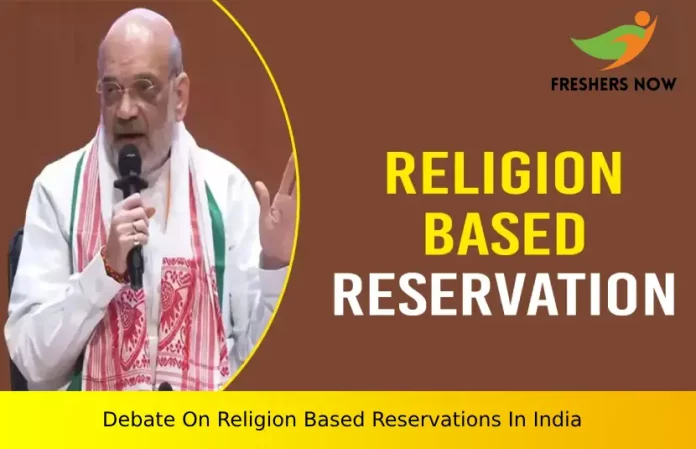
Debate On Religion-Based Reservations In India: India’s Constitution initially emphasized equality but later shifted towards equity through affirmative action to address historical injustices and societal imbalances, Religion-based reservations. Provisions like Articles 15(4) and 16(4) enable special provisions for socially and educationally backward classes, Scheduled Castes (SCs), and Scheduled Tribes (STs).
Religion-Based Reservations: Theory and Practice
While the Constitution prohibits discrimination based on religion, caste, or other grounds, it allows affirmative action through reservations for “backward classes,” which can include religious minorities if they meet social and educational backwardness criteria.
Key Examples of Muslim Reservations in States
- Kerala:
- Introduction in 1936: In 1936, the Travancore-Cochin state introduced Religion-based reservations, marking the first instance of its kind in India.
-
- Replacement by Communal Reservation in 1952: By 1952, communal reservation replaced the initial system. Under this, Muslims, constituting 22% of the population, were included within the Other Backward Classes (OBCs).
-
- Inclusion of Muslims in Kerala’s OBC Quota (1956): Following the formation of the state of Kerala in 1956, all Muslims were included in one of the eight sub-quota categories. Additionally, a sub-quota of 10% (now 12%) was created within the OBC quota to specifically accommodate Muslims.
- Karnataka: Recognition of 36 Muslim castes as backward, included in the OBC quota.
- Tamil Nadu: Sub-quota for backward Muslims within OBC reservation, ensuring social backwardness criteria are met.
- Andhra Pradesh & Telangana: Efforts to classify Muslims as a backward class or specific castes, with varying judicial acceptance.
Constitutional and Judicial Insights
The Supreme Court of India has clarified that reservations in India can extend to religious groups if they are socially and educationally backward. This aligns with substantive equality principles aimed at rectifying historical disadvantages. High court rulings have validated religion-based reservations, stating they do not conflict with India’s secular principles.
Religion-based Quotas and Secularism
High court rulings have validated Religion-based reservations, stating they don’t conflict with secular principles, aiming at uplifting socially and educationally backward communities.
Future Prospects and Challenges
The reservation landscape in India is evolving, with ongoing legal, social, and political debates shaping its application and expansion. Balancing constitutional mandates of secularism, equality, and justice with the need for social upliftment across religious lines remains a key challenge. Maintaining this balance while addressing the practical needs of various backward communities is crucial for the future of reservations in India.
Stay updated with the latest current affairs and insightful blog posts by following FreshersNow. Don’t miss out on future content that keeps you informed and engaged!
| You Can Also Check | |
| Current Affairs | |



